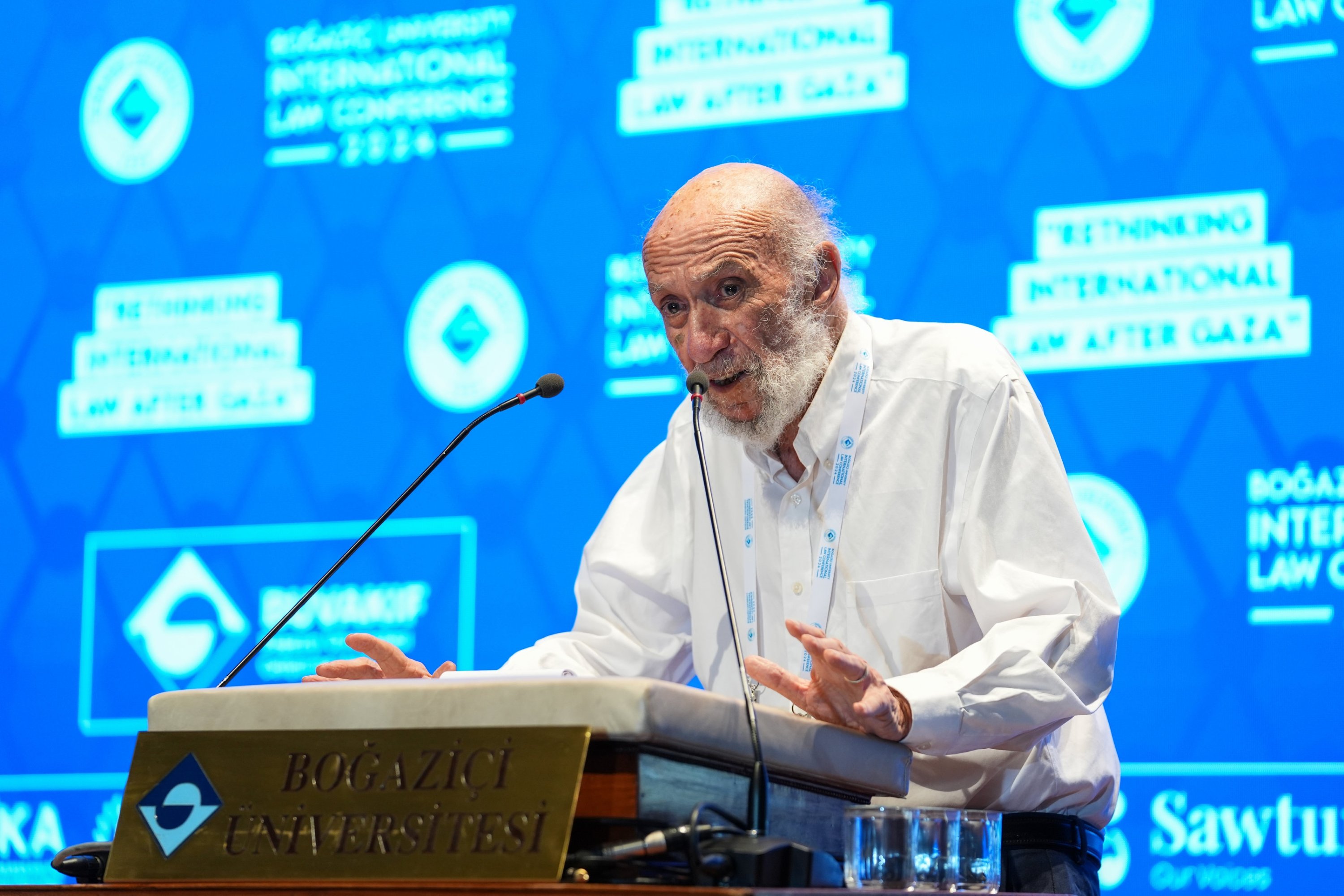© Turkuvaz Haberleşme ve Yayıncılık 2026
A leading international law conference in Istanbul discussed over the weekend the future of international law amid flagrant violations by Israel in its genocidal war on Gaza.
Organized by Boğaziçi University Faculty of Law, the "Rethinking International Law After Gaza" conference drew several leading global academics and scholars on international law.
Among them was Richard Falk, a world-renowned political scientist and expert in international law at Princeton University and a former U.N. Human Rights Rapporteur.
In his keynote address during the "Justice and International Law" session, Falk severely criticized Israel's genocide in Gaza and the international community's response. He emphasized the inadequacies of international law in addressing the crisis.
"The genocide continues, and the threat of a wider catastrophic war in the region directly linked to Gaza has become a growing concern," he said.
He accused Israel of ignoring international resolutions that could have halted the occupation of Gaza, the West Bank and East Jerusalem.
"Israel has flagrantly disregarded authoritative decisions that would have stopped the genocide and ended the occupation," Falk said, denouncing the global community's failure to enforce these laws.
He described the situation as a continuation of apartheid in a postcolonial context, with the Oct. 7 Hamas incursion providing "an excuse for the Netanyahu government to pursue ethnic cleansing."
Falk also condemned the double standards in the international response to Israel's actions, calling them an "expression of hypocrisy" and a misuse of international law as a policy tool against enemies.
Despite its flaws, Falk stressed the importance of international law in legitimizing solidarity movements and educating future generations about justice and human rights.

Another keynote speaker Balakrishnan Rajagopal, the U.N. Special Rapporteur on the Right to Housing, discussed the impact of systematic housing destruction in Gaza and other conflict zones.
He called for the international community to recognize such acts as separate crimes under international law and to take concrete steps to address them.
"Israel enjoys impunity, a violation of international law that has its own normative force," Rajagopal said, criticizing the failure of international law to protect Gaza.
He introduced the concept of "domicide," the mass demolition of houses, and argued for its recognition as a crime due to its severe impact on human dignity and social integrity.
"Losing a home is a profound loss that causes us to lose our humanity," Rajagopal said, describing the demolition of homes as a crime against humanity and an act of genocide in the case of Gaza.
He warned that the challenges of rebuilding Gaza could mean the process would take decades under current conditions.
The two-day symposium was held at Boğaziçi University ended Sunday.
